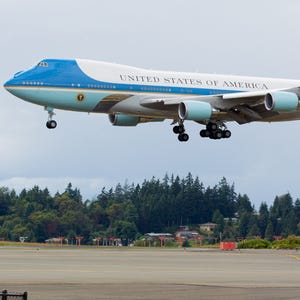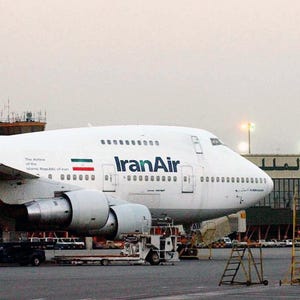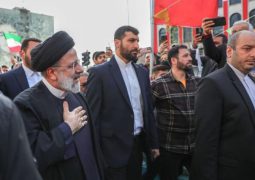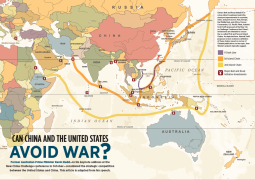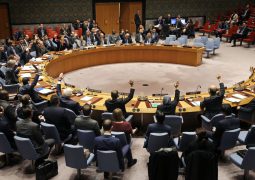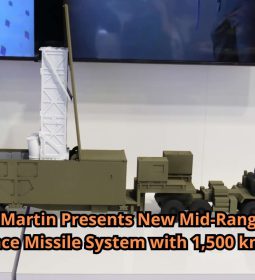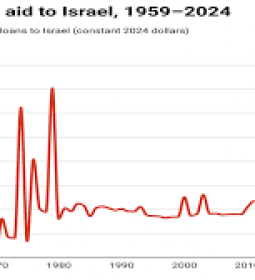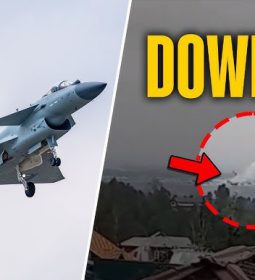Boeing’s $16B aircraft deal with Iran Air faces challenges
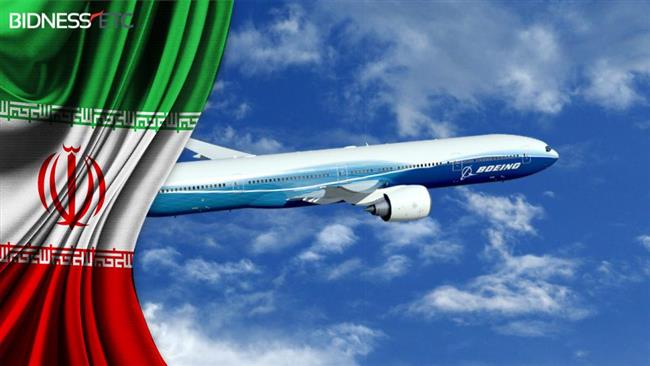
Investors need to come to grips with the fact that Donald Trump is the “Negotiator-in-Chief” based on his Boeing and UTX maneuvers, said TheStreet’s Jim Cramer. Boeing shares moved lower yesterday after President-elect Donald Trump tweeted that the government should cancel its order of a new Air Force One 747 jetliner, which he says could cost $4 billion. He also said the costs are “out of control.” Video provided by TheStreet Newslook
Boeing has government approval to fill Iran Air’s $16 billion aircraft order, but it may still be grounded by Congress.
And President-elect Trump, who has criticized the Iran nuclear accord that allowed the deal to take off, could eventually have a say, too.
The Chicago-headquartered Boeing said Sunday that it will sell 80 jetliners worth $16.6 billion to Iran Air. Boeing got approval to sell planes in Iran in September but had to wait for a license for the Iran Air deal from the U.S. Treasury Department’s Office of Foreign Assets Control.
This would be the largest business deal that a U.S. company had done with Iran since President Obama signed an executive order lifting sanctions against the country. That order came after Iran agreed to end its pursuit of nuclear weapons under an accord reached in July 2015 with the United Nations Security Council members — the U.S., Britain, China, France and Russia — and Germany.
But Boeing’s deal could face opposition in Congress and the White House. “We will aggressively fight this deal in next Congress, though we probably won’t even need new legislation to do it,” said David Pasch, communications director for Rep. Peter Roskam, R-Ill. “The incoming appointees at Treasury and State will no longer report to a White House willing to bend over backward and ignore national security concerns (in order) to keep Iran from walking away from the nuclear deal.”
In May, Roskam, along with fellow Illinois Republican Reps. Robert Dold and Randy Hultgren, sent a letter to Boeing asking the company not to do business with Iran until it renounces support for terror groups. Last month, the House of Representatives approved a bill that would prevent the Treasury Department from giving U.S. banks the licenses to help Boeing complete the transactions. Since Obama would likely veto the bill, it hasn’t moved in the Senate.
“Congress will have a lot to say, particularly working in concert with an administration that has a fairly low view of this deal,” Roskam told USA TODAY.
He also said the deal depends on financing. Any bank that would get involved “has to ask itself is it worth the reputational risk to be complicit with the world’s largest state sponsor of terrorism?”
Congressional opposition to the Iran nuclear accord has gained momentum with the victory of Trump, who has called the accord “the stupidest deal of all time.” He and Vice President-Elect Mike Pence have suggested they will consider renegotiating the deal when they take office. Trump’s transition staff did not respond to requests for comment.
Joe Lieberman, the former Independent senator from Connecticut who’s now chairman of United Against Nuclear Iran, an advocacy group, said the Iran deal faces a hostile future in Washington.
While it’s not clear Congress or the new Trump administration will try to overturn it, “there will at least be demands for stricter enforcement of the nuclear deal, an expansion of non-nuclear sanctions on Iran, and for companies — like Boeing — to cease efforts that reward the regime with lucrative business opportunities when it continues to be the leading state-sponsor of terrorism worldwide,” Lieberman said.
Boeing itself has also been in the news recently with Trump’s call for the cancellation of the manufacturer’s deal to build the next Air Force One planes because of cost overruns on the project. “Boeing is building a brand new 747 Air Force One for future presidents, but costs are out of control, more than $4 billion. Cancel order!” he tweeted last week.
Boeing, which also said the Iran deal will help support nearly 100,000 U.S. jobs, expects to begin filling Iran Air’s shopping list, which includes 50 737s, in 2018. The planes will be delivered over a 10-year period, Farhad Parvaresh, the managing director of the Iran’s Civil Aviation Organization, told Iran’s official news agency IRNA on Sunday.
Boeing isn’t the only company looking to cash in in Iran. Competitor Airbus is also breaking into the market, and last week Royal Dutch Shell, the world’s second-largest energy company, said it would begin developing oil and gas in Iran.
At United Against Nuclear Iran, a group that advocates against the normalization of business dealings with Iran, retired Capt. Michael Pregent advised against Boeing’s sale due to the Islamic Revolutionary Guard Corps’ use of “civilian airliners to support terrorism.” A founding member of UANI’s veterans advisory council, Pregent said, “It is inexcusable for Boeing to enter into business dealings with the regime when they are fully aware it is responsible for deaths and maiming of our men and women in uniform.”
Before last year’s nuclear accord to curtail Iran’s nuclear program, the U.S. had not had diplomatic ties with the country since 1980. The year before a revolution overthrew the U.S.-backed shah of Iran and 52 Americans were held hostage for 444 days. The State Department had considered Iran as a “state sponsor of terrorism” for funding U.S.-targeted militant groups around the world, including Palestinian terror groups.
- Previous Magagandang Leni on Rody: We should work together like the nation’s parents
- Next As Turkey Cracks Down, Kurdish Mayors Pack Bags for Jail


